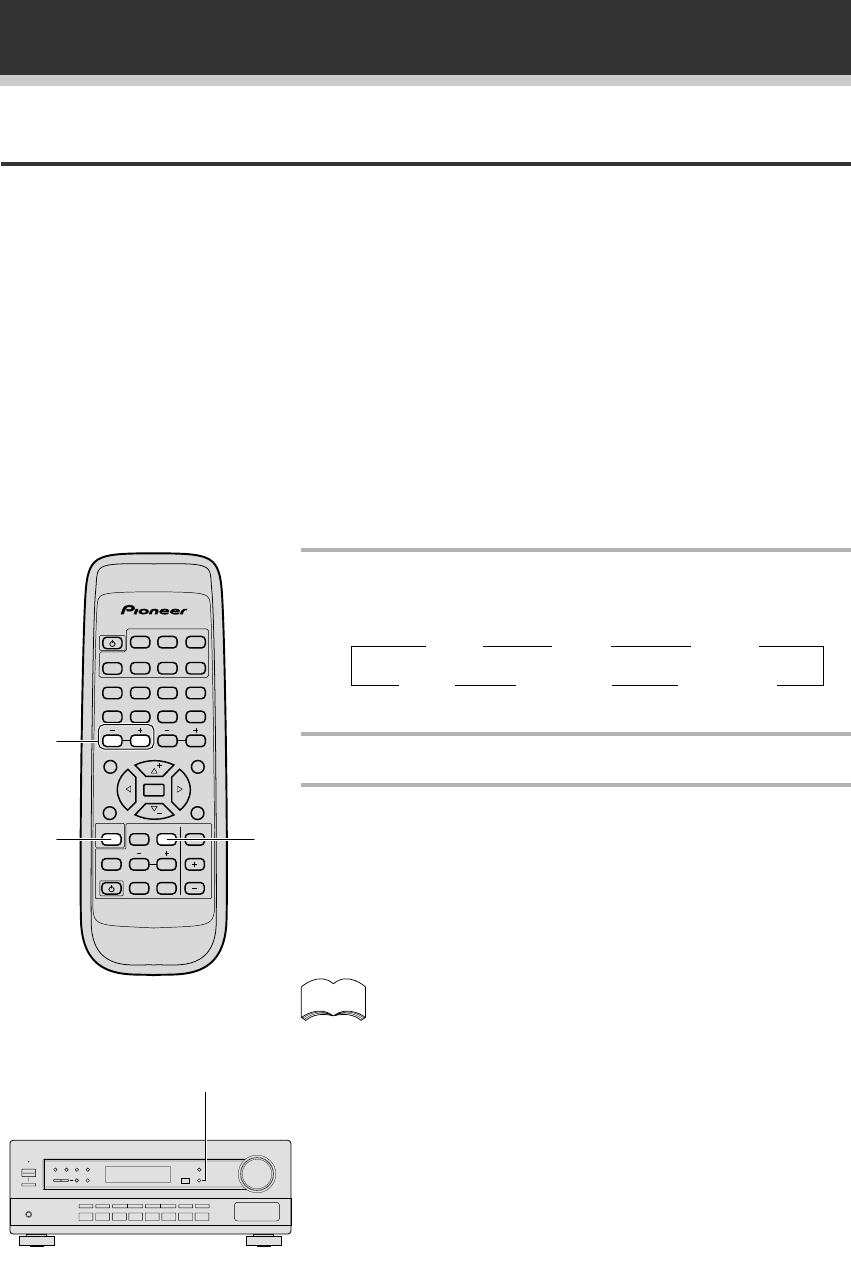
22
Listening in Surround Sound
Listening in DSP Mode
The DSP (Digital Signal Processing) modes transform your living room into a variety of different sound
environments when playing standard (two channel) stereo sources. Optionally, you can adjust the amount of
effect added to the source. The descriptions below give an idea of what the five different modes sound like, but
the best idea is to play a source and experiment.
HALL
Simulates the acoustic environment of a large
classical concert hall. Long delay and reverb decay
times create a sense of music being played in a
large space.
JAZZ
Simulates the acoustic environment of a jazz club.
Shorter delay times and a tighter reverb help to give
the sound a live, small club feel.
CLASS
MENU
MPX
SET UP
D. ACCESS
TOP MENU
SOURCE
SOURCE SELECT
DVD
TAPE
CD
TUNER
TV CONT.
CH.
SELECT
FUNCTION
FL
DIMMER
RECEIVER
MD
CD-R
*&#@
TV VOL.
EFFECT
TV FUNC.
TEST
TONE
MUTING
MASTER
VOLUME
DSP MODESORROUND
2
!
!
Î
AV MULTI-CHANNEL RECEIVER
REMOTE CONTROL UNIT
LEVEL
CHANNEL
STATION
$
$
ENTER
RF ATT
DISP
FQ
FQ
1234
56
90
78
3
2
1
1
1
Select a DSP MODE.
Repeated presses of DSP MODE changes the DSP mode in the
following sequence:
2
Press the SURROUND button.
3
Use the EFFECT +/– buttons to adjust the
DSP effect level.
You can adjust the effect level within an range of 10–90 (the default
settinig is 50).
• All DSP effect levels are independent of each other.
• You can input level settings specifically for each DSP mode
and this will enhance your surround sound experience.
• If you turn the speakers off, DSP goes off as well.
• When the speakers are off you can't use the DSP mode.
• You can't use the tone controls, the DIRECT function with
DSP mode.
DANCE
Simulates the acoustic environment and strong bass
sound of a dance music club.
THEATER 1
Simulates the acoustic environment of a mid-sized
movie theater.
THEATER 2
Similar to the above but maintains proper
localization of each channel.
3
HALL
3
2
THEATER 1
2
THEATER 2
2
DSP
OFF
3
JAZZ
DANCE
memo


















